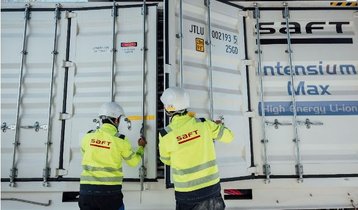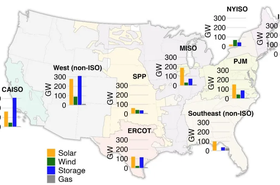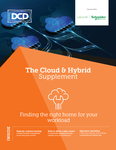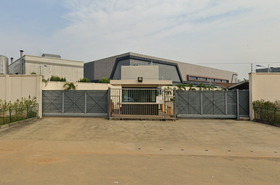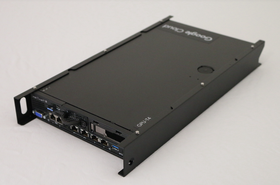Microsoft is using a battery energy storage system (BESS) from Saft at a Swedish data center, after its use of diesel backup generators in the country previously faced criticism.
The BESS system was delivered in June, and provides 16MWh of storage, which Saft's releases say is enough for 80 minutes of backup energy with units that can provide peak power of 24MW.
The release does not give the location of the data center where the BESS is deployed, but Microsoft has opened three facilities in Sweden since announcing an Azure region there in November 2020, and has been criticized for its use diesel generators at one of them in Staffanstorp, Skåne/Scania County.
Microsoft announced in 2021 that it would phase out diesel completely by 2030 globally as part of its plan to reach net-zero by that year.
However, when Microsoft opened the Sweden Central region in late 2021, delivered from facilities in Gävle, Sandviken, and Staffanstorp, backup was provided by diesel, although the company has replaced some regular diesel in Sweden with a partly-renewable fuel, having signed to buy Preem Evolution Diesel Plus, a fuel which contains at least 50 percent renewable raw material.
Despite this, Microsoft faced opposition to planning applications in Staffanstorp due to its use of diesel, according to local media reports. In 2022, the company had asked to add 70MW of diesel backup at Staffanstorp. but withdrew the request following protests, and announced that it was looking for other sites in southern Sweden.
According to Sydsvenskan, Microsoft's first application on the site was to build a warehouse, "and only when the building was finished did Microsoft apply for a permit with the County Administrative Board in Scania for environmentally hazardous operations, approximately nine diesel units."
In May 2022, Microsoft issued a statement, promising to be “a good neighbor” and only use generators for test runs and power cuts - "something that is very unusual in Sweden as we have a stable electricity grid."
Andreas Wingren, head of communications at Microsoft Sweden, told the local press that public opposition was not the reason it dropped its plans to expand at Staffanstorp.
"We can already state that even if we expand in Staffanstorp to the maximum capacity, it will not cover the needs we have in the region," he said. “The reason behind the decision is a greatly increased demand for the company's cloud services and secure data storage, which means that there is a need for a larger data center in the region than the one planned in Staffanstorp.”
The company said it would "continue to operate and expand operations in our data center in Staffanstorp, but this will only happen with the reserve power units that are already in place today."
DCD noted at the time, that it was not clear how the company could expand without more backup power of some kind.
Saft is a subsidiary of TotalEnergies, and the BESS system is part of a deal it signed with Microsoft in 2021 to support Microsoft's goal of removing diesels by 2030.
The Saft BESS includes eight Intensium Max 20 High Energy battery containers, arranged in four groups, each with 4MWh capacity, for up to 80 minutes of backup energy. That suggests an average power delivery of 12MW. Saft's release says the eight battery containers are each capable of delivering a peak power rating of 3MW.
The unit was deployed over 16 months, and will displace an unspecified number of diesel generators. It will also support grid stability and provide black start capability to ensure rapid recovery of the power grid in the case of an outage.
“Finding alternatives to diesel backup is an important step towards our 2030 goal to become carbon negative, and is integral to our 2050 goal to remove from the environment all the carbon that Microsoft has emitted since it was founded in 1975," said Eoin Doherty, general manager, EMEA, Microsoft Cloud operations & innovation.
Cedric Duclos, Saft’s CEO added: “TotalEnergies is proud to support Microsoft in its goal to reduce its emissions from data centers. The collaboration with Microsoft has allowed its affiliate Saft to deliver this system, which shows the huge potential for battery energy storage to decarbonize the digital industry.”

